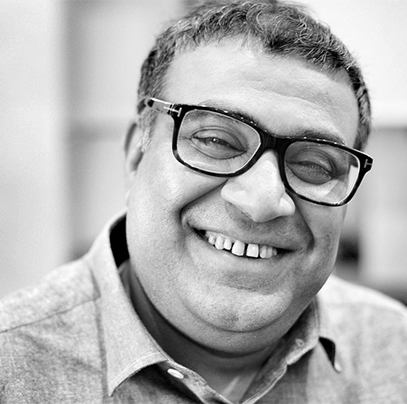 photo by Alessio Jacona – The Whole Picture #ijf14
photo by Alessio Jacona – The Whole Picture #ijf14
Om Malik’s story seems at first one of those great examples of blogging success. The blog he founded in 2001, Gigaom, whose mission is to “humanise technology,” now claims more than 6.5 million unique readers a month. But Malik is not simply a blogger. He is a journalist with more than 20 years of experience in writing about technology and business news, and even briefly worked as a venture capitalist before deciding to return doing what he loved: writing and reporting.
In his first presence at the International Journalism Festival, Malik’s media optimism shined in several panels about digital content, and we tried to sum it all up in this brief interview.
Can you mention one advantage and one disadvantage that digital journalism has over traditional journalism?
I don’t know if there is any such a distinction. Technology is part of the journalism process and always has been. In the past, very few people had access to technology, and only big publications had access to big data like Lexis Nexis, or could make more phone calls and travel to more places. Now, people like you and I just go on the Internet, dig up information, look for stories and have much more background very quickly. I think that is the difference. Technology has made our job faster, easier in one way, and more difficult in some ways. It has definitely made been on the newsbeat something like been on a treadmill: you have to move very fast.
You started blogging in 2001, which was still the dawn of the blogging sphere. What made you attracted to blogging in the first place?
I did not think in terms of the tool, I thought about the information and how I could share it. I used to work for a monthly magazine, but I liked being a daily reporter and since I could write everyday on the Internet, I decided to start writing a blog. It’s not like I thought blog were great themselves, I thought blogs were a great tool to make everything work, a great tool to publish, to distribute, to reach other people very fast. And I have always done that in my life, I have adopted any new technology as soon as it came out, I used Twitter, Facebook, Instagram, anything… mostly because I feel that the core reason people do what they do in our profession is to get the information out to other people.
You are a technology optimist, yet many feel skeptical about using social media, partially for reasons discussed in the panel regarding ownership, access, and censorship. Are social media a necessary evil?
Social media are not a necessary evil. They are part of the process, they are the reality we live in. If you start using it, you will learn how you can avoid its pitfalls and how you can make it better. If you don’t use Twitter, how will you understand when something is better than Twitter? You need to have a relative understanding. You need to be open-minded about it, you have to be careful, and you need to understand why you are doing certain things.
With such abundance of online content, how can a writer retain ownership and earn a revenue from writing?
I never really thought that, not even once in my whole life, in my whole career. The number one thing you have to do is to make sure you have enough readers to read you, because that’s what makes a call relevant to the newsroom: focus on the writing and the reader.
You said it was time for big publications to think of themselves as technology platforms. What did you mean by that?
I mean that a media platform can be used to publish interesting things, stories that people want to read and with which they want to engage. The only way to do that is to start thinking if media can develop a technology platform with a very product-centered approach. It is time to start thinking constantly about the ways to go beyond just photos and video to build a more engaging experience.


